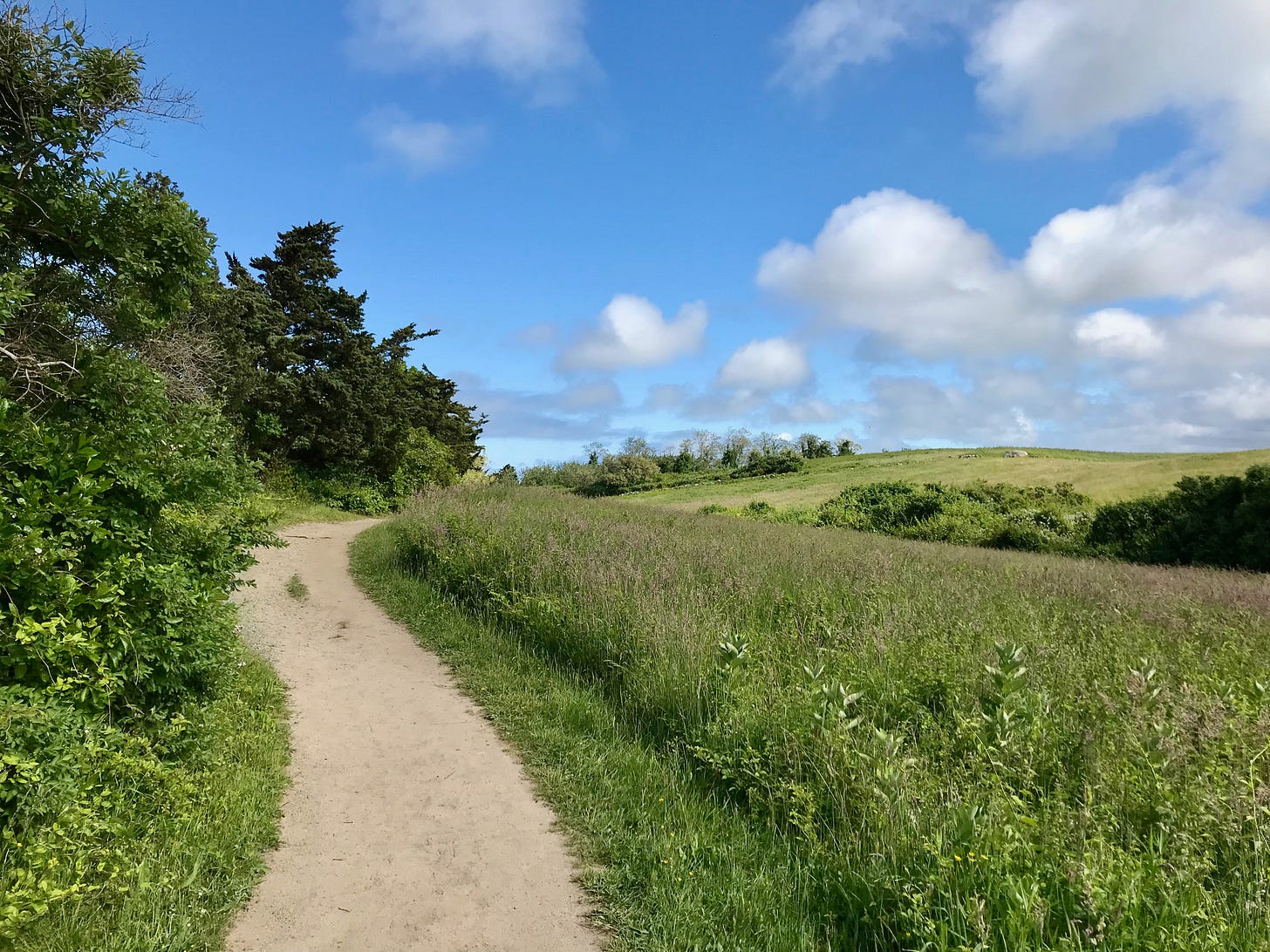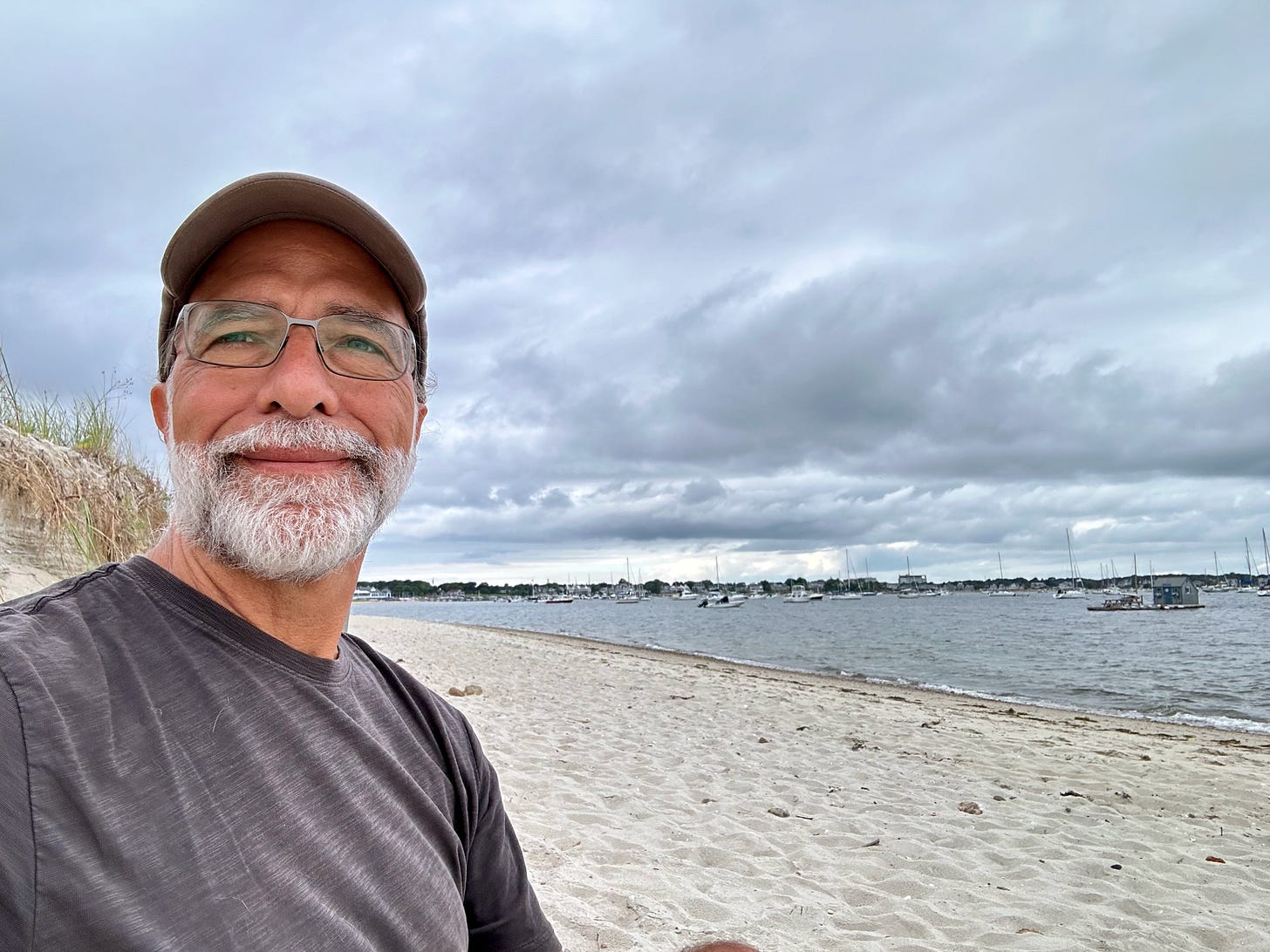Who Am I? versus, Who Do I Want to Be?
How I muddled the answer by mistaking one question for the other

Our soft bodies live a mere 75 years or so, then return themselves to the earth. Why spend those years doing anything other than what feels right and brings us the most peace and well-being? That doesn’t necessarily mean tattooing yourself from top to bottom and proclaiming your weirdness to all; nor does it mean living as a church-going, wealth-building exemplar to respectable society. It just means being you.
Which obviously begs the question: Who am I?
In an earlier essay, I wrote about how I took the question, Who am I?—posed to me and the rest of my high-school English class by our spunky and unforgettable teacher, Sister Vera—and misconstrued it for the rest of my life as, Who do I want to be?
The two questions give rise to actions that are as different as going to sleep and waking up.
Who do I want to be?
Exploring my skills and desires
Spending time and money on:
Certificates, degrees, workshops
Clothing
Cars
Hobbies and endeavors
Clubs, gyms, societies, guilds
Career and personal coaches
Wishing I was smarter, stronger, richer, better-looking
Spiritual seeking, joining churches, sanghas, movements
Asking others for help and guidance
Following persuasive, charismatic, or disingenuous gurus or mentors
Devouring self-help books
Constantly re-evaluating my goals
Looking outside myself for answers
Who am I?
Self-reflection
Objectively observing what is
Quiet time, alone time
Stilling the mind in order to see and understand more clearly
Letting go of agendas, desires
Withholding judgment of self and others
Choosing not to trust beliefs, opinions, perceptions, feelings, whims
Looking inside myself for answers
Despite the obvious appearance of bias, I am not really saying that one is better than the other, just that they are different. And if I really want to know who I am, which I think is a pretty darn important prerequisite to knowing who I want to be, then the answer is not going to be found anywhere but right here—the only place I can be—and right now—the only moment that exists.
I’m fifty-nine years old. That high-school English class, which did certainly inspire me to ask questions (and to write them down!) is a 40-something-year-old memory now. Did I ever find the answer to my misconstrued version of Sister Vera’s question—Who do I want to be?
I would say no, I did not. Because want is an everchanging and unreliable concept. If anything, I’ve learned not to trust my desires. They are, more often than not, only based on my insecurities, on the fact that I have compared myself to someone else and found myself wanting.
Have I found the answer to her original question—Who am I?
Well, I won’t say that I have found any answer, to anything, because all answers, if true at all, are only true temporarily, evolving alongside a constantly changing universe. But I will say that I have learned where to look:
Not in the future and not in the past. Not on the other side of the fence, nor on the other side of the ocean. Not in books (though books are very helpful for pointing me in the right direction) and not in religion. Not from teachers and not from speakers (also, like books, good pointer-outers… sometimes).
The answer is not in my feelings, and it is not even in my thoughts. Thoughts, as the spiritual leader, J. Krishnamurti, repeatedly insisted in his talks and in books like Freedom from the Known and Think on These Things, are formed of memories, and are therefore always of the past.
The question Who am I is like a Zen koan; it isn’t necessarily answerable, but it does a darn good job of putting me right where I need to be:
Here. Now.
And that, after all, is the only place where truth lives.
As the poet laureate of Colorado,
, writes in a recent essay that I liked so much I’m sharing a link below:There is a big difference between a truth and an answer. When I land on a truth, I feel my being stretching like sunlight far beyond my physical body, and I experience the thoughts in my mind as passing clouds. And, when I find answers, they very often turn out to be just clouds.*
Asking the question, Who am I? is a good and necessary thing to do. But we must remember that the answer is not one we can create out of our conditioned minds, minds that want based on yearning and aversion, comparison, judgement, self-consciousness; it is only by stepping out of the way of our busy brains, and maintaining a quiet and receptive, open-minded alertness, that truth can reveal itself.
BOOKS MENTIONED
Jiddu Krishnamurti. Freedom From the Known. HarperOne, 2009 (this edition) — Think on These Things. HarperOne, 1989
Great news! I am now an affiliate at bookshop.org, an organization that supports indie bookstores rather than giving billions of YOUR dollars to giant monopolies. If you navigate to bookshop.org through any book or store link on Shy Guy Meets the Buddha and purchase ANY book, I will earn a small commission and YOU will be helping keep this publication available to everyone (and also helping independent book stores everywhere). Thanks for your help! 🙏
*Quote by
from this eloquently beautiful reflection that I enjoyed this week:Thank you for reading Shy Guy Meets the Buddha: Reflections on Work, Love, and Nature. If you enjoy these mindfulness-themed biographical essays and would like to show your support, please consider becoming a supporting member for only $5 a month.
Alternatively, a one-time donation will help me continue the hard work behind these creative efforts; “Buy me a coffee” here or by clicking the button below. And don’t forget to like and share; Please take a few moments to show you care. Thank you! 💚







A lovely piece, Don. I think as long as we are at peace with who we are, and accept that, then that’s all that matters. The older I get the less I stress about what I want and am more at ease with where I am as much as who I am. A 65 year old woman, full of vitality and optimism. Living life to the full while I still can!
Great essay Don. I think that when we answer the first question, who am I?, And realize that the answer is simply being, it becomes much easier to answer the second.
Because we know there is no wrong answer. Any answer is good as another, We can answer it in any way we want to, and no one will stand in judgment of it, ever. Simply because there is no one else.